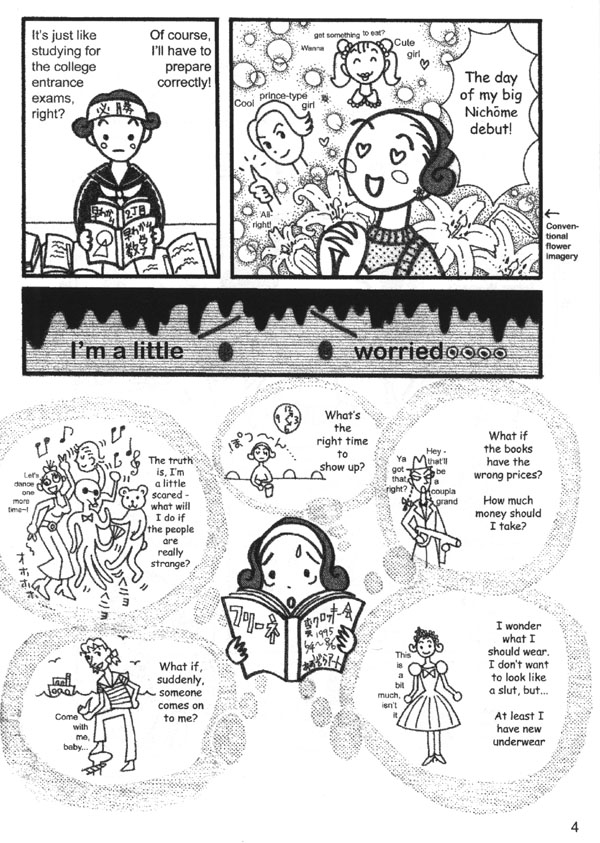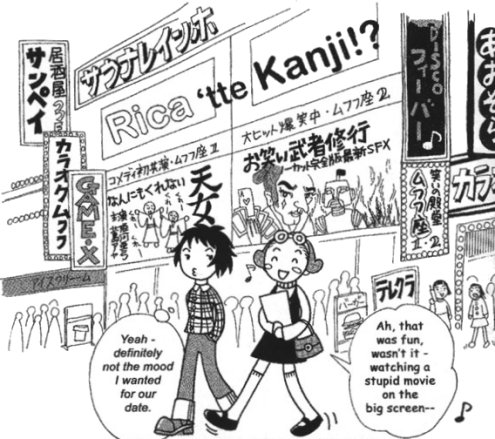 Attention manga shoppers! Kodansha is currently holding a blow-out sale on digital manga. And when I say “blow out,” I mean it: they’re offering deep discounts on over 3,000 titles, with first volumes priced as low as 99 cents, and later volumes discounted 50%. It’s a great opportunity to try a buzz-worthy series such as Blue Period, Boys Run the Riot, Knight of the Ice, PTSD Radio, or Witch Hat Atelier; to catch up on long-running favorites; or to check out classic titles such as Black Jack and Princess Knight. Don’t wait, though; the sale ends on Monday, August 22nd.
Attention manga shoppers! Kodansha is currently holding a blow-out sale on digital manga. And when I say “blow out,” I mean it: they’re offering deep discounts on over 3,000 titles, with first volumes priced as low as 99 cents, and later volumes discounted 50%. It’s a great opportunity to try a buzz-worthy series such as Blue Period, Boys Run the Riot, Knight of the Ice, PTSD Radio, or Witch Hat Atelier; to catch up on long-running favorites; or to check out classic titles such as Black Jack and Princess Knight. Don’t wait, though; the sale ends on Monday, August 22nd.
MANGA NEWS
The July NPD Bookscan Numbers are in, with My Hero Academia, Spy x Family, and Kaiju No. 8 topping the list. Also making a strong showing on this month’s bestseller list are Demon Slayer: Kimetsu no Yaiba and Chainsaw Man. [ICv2]
Have you completed this month’s Seven Seas Reader Survey? If not, don’t miss your opportunity to make licensing requests and give feedback on new and upcoming releases. [Seven Seas]
Coming soon to the Azuki platform: Red Riding Hood’s Apprentice: Final Testament to the Moon (Glacier Bay Books) and Doomsday Cleaning (Star Fruit Books). [Azuki]
Job alert: VIZ Media is currently looking for a Copy Editor. [VIZ Media]
Help Erica Friedman celebrate the 20th anniversary of Okazu by participating in a treasure hunt! The winner will receive a t-shirt of their choice from the Yuricon store. [Okazu]
And speaking of Erica Friedman, she and Rica Takashima (Rica ‘tte Kanji?!) will both be guests at Flame Con this weekend. [Anime News Network]
Blood on the Tracks, Blue Period, and Cat + Gamer are among the titles competing for Best Manga at this year’s Harvey Awards. Also making the cut are Chainsaw Man, Red Flowers, and Spy x Family. [ICv2]
Cartoon Crossroad Columbus (CXC) announced that manga scholar Frederik L. Schodt will be the recipient of the second annual Tom Spurgeon Award, which “honors those who have made substantial contributions to the field of comics, but are not primarily cartoonists.” Schodt is author of three books: Manga! Manga! The World of Japanese Comics (1983), Dreamland Japan: Writings on Modern Manga (1996), and The Astro Boy Essays: Osamu Tezuka, Mighty Atom, and the Manga/Anime Revolution (2007). In addition, he has translated a number of manga into English, including Osamu Tezuka’s Astro Boy and Henry Yoshitaka Kiyama’s The Four Immigrants Manga. [CXC 2022]
FEATURES, PODCASTS AND INTERVIEWS
If you’re a parent, teacher, or librarian in search of STEM-friendly comics, look no further than this helpful list compiled by the experts at No Flying No Tights. [No Flying No Tights]
Brigid Alverson posts a brief but thoughtful tribute to illustrator Sho Murase, who passed away earlier this month. [ICv2]
It’s Witch Week at Mangasplaining! Join the crew for lively discussions of Witch Hat Atelier, Witchcraft Works, and Witches, then stay for the bonus discussions of Fuyumi Soryo’s MARS and Yayoi Ogawa’s You’re My Pet (originally published in English as Tramps Like Us). [Mangasplaining]
The latest Manga Machinations podcast focuses on Yokohama Kaidashi Kikou as well as two manga/Marvel crossovers: Wolverine: SNIKT! and Secret Reverse. [Manga Machinations]
What did David and Jordan think of Monster Hunter Orage? Tune in to the latest Shonen Flop episode for their thoughts on Hiro Mashima’s other battle manga. [Shonen Flop]
ICYMI: Ashley and Loyola Rankin dissect the first eight volumes of Love*Com (Lovely Complex). [Shojo & Tell]
In honor of Sailor Moon‘s thirtieth anniversary, Christopher Chiu-Tabet revisits the first eight issues of Codename: Sailor V. [Multiversity Comics]
Jocelyne Allen flips through the pages of Keiko Takemiya’s Kokuhaku. “The takeaway for this volume… is pure vibes,” she notes. “The seven stories in the collection technically have plots, but these tales are mostly about the feels. Because the stories themselves inspire questions like ‘how?’ and ‘why is this happening?’, and the smaller details of what is going on aren’t really relevant. Takemiya is using science fiction to dig deep into psyches and emotions and relationships because this is shojo before it’s SF, and shojo demands feels.” Someone license this, please! [Brain vs. Book]
Elias Rosner interviews Ryan Holmberg about translating Yamada Murasaki’s Talk to My Back. [Multiversity Comics]
Over at TCJ, John Holt and Chikuma Teppei translate Natsume Fusanosuke’s essay “The Transgenerational Manga Sazae-san and Its Meaning.” In their preface, Holt and Teppei attribute the enduring cultural appeal of Hasegawa Machiko’s series to its long-running anime adaptation. “Like The Simpsons, the animated Sazae-san has been a fixture of Japanese television for decades,” they observe, “but unlike Matt Groening’s creation, Sazae-san has been a wholesome staple of family life, still operating by the terms of 1950s and 1960s culture in new episodes today. Therefore, although it lacks a Simpsons-level criticality, Sazae-san is still a mirror of society. As Natsume argues, the manga and anime create a kind of touchstone to what was good about Japan in the late 20th century. In this way, Sazae-san not only entertains, but also it curates a way of life that may be now remote or even alien to the lived experience of contemporary viewers in Japan.” [The Comics Journal]
REVIEWS
Scott Cederlund reflects on the radical empathy of Gengoroh Tagame’s Our Colors, while Eric Alex Cline explains why he won’t be picking up volume two of Rooster Fighter. “Whether one finds the series worth following will largely depend on if they share its ridiculous sense of humor, and if they’re willing to overlook incredibly blatant bigotry in character design,” Cline observes. “The major con is that some of the monster designs are lackluster, and the last one in particular tanks the fun vibes with a sudden veer into blatant transphobia.” You’ll also find new capsule reviews at Women Write About Comics, where Masha Zhdanova looks at three new VIZ titles, and right here at Manga Bookshelf, where Sean Gaffney, Michelle Smith, and I tackle Rooster Fighter, Shadow House, and Wandance.
New and Noteworthy
- The Abandoned Empress, Vols. 1-2 (Noemi10, Anime UK News)
- Bleach: 20th Anniversary Edition, Vol. 1 (Tony Yao, Drop-In to Manga)
- Blue Lock, Vol. 1 (Renee Scott, Good Comics for Kids)
- Box of Light, Vol. 1 (Rebecca Silverman, Anime News Network)
- Dandadan, Vol. 1 (Brett Michael Orr, Honey’s Anime)
- The Elusive Samurai, Vol. 1 (King Baby Duck, Boston Bastard Brigade)
- GAME: Between the Suits, Vol. 1 (Rebecca Silverman, Anime News Network)
- I Am a Cat Barista, Vol. 1 (Johanna Draper Carlson, Comics Worth Reading)
- Kowloon Generic Romance, Vol. 1 (Sarah, Anime UK News)
- Lost Lad London, Vol. 1 (Johanna Draper Carlson, Comics Worth Reading)
- New York, New York, Vol. 1 (Al, Al’s Manga Blog)
- The Other World’s Books Depend on the Bean Counter, Vol. 1 (Sarah, Anime UK News)
- Pretty Guardian Sailor Moon: Naoko Takeuchi Collection, Vol. 1 (SKJAM, SKJAM! Reviews)
- Romantic Killer, Vol. 1 (Brett Michael Orr, Honey’s Anime)
- Talk to My Back (Lindsay Pereira, Broken Frontier)
- To Strip the Flesh (Seth Smith, Women Write About Comics]
- The Town of Pigs (Danica Davidson, Otaku USA)
- Vampeerz, Vol. 1 (Danica Davidson, Otaku USA)
- Why Raeliana Ended Up at the Duke’s Mansion, Vol. 1 (Noemi10, Anime UK News)
- The Wolf Never Sleeps, Vol. 1 (Rebecca Silverman, Anime News Network)
Ongoing and Complete Series
- Beastars, Vols. 18-19 (King Baby Duck, Boston Bastard Brigade)
- Beauty and the Feast, Vols. 2-3 (Rebecca Silverman, Anime News Network)
- Can’t Stop Cursing You, Vols. 2-3 (Demelza, Anime UK News)
- Cheeky Brat, Vol. 3 (Krystallina and Justin, The OASG)
- Cherry Magic! Thirty Years of Virginity Can Make You a Wizard?!, Vol. 3 (Johanna Draper Carlson, Comics Worth Reading)
- Daytime Shooting Star, Vol. 11 (Jaime, Yuri Stargirl)
- Deadpool: Samurai, Vol. 2 (King Baby Duck, Boston Bastard Brigade)
- Fly Me to the Moon, Vol. 12 (Josh Piedra, The Outerhaven)
- Magu-chan: God of Destruction, Vol. 4 (King Baby Duck, Boston Bastard Brigade)
- Minami Nanami Wants to Shine, Vol. 2 (Demelza, Anime UK News)
- My Hero Academia: Vigilantes, Vol. 12 (King Baby Duck, Boston Bastard Brigade)
- My Love Mix-Up!, Vol. 4 (Rebecca Silverman, Anime News Network)
- Rebel Sword (Megan D., The Manga Test Drive)
- Superwomen in Love: Honey Trap and Rapid Rabbit, Vol. 4 (Erica Friedman, Okazu)
- Whisper Me a Love Song, Vol. 5 (Erica Friedman, Okazu)
- Witch Hat Atelier, Vols. 8-9 (Sarah, Anime UK News)
- Witch Hat Atelier, Vol. 9 (Helen and Justin, The OASG)

 Hi, all! Its been a relatively slow news week manga-wise and a crazy week for me work-wise, so I’m going to dispense with the snappy introduction and get right to the links! As always, if there’s a great blog, podcast, or YouTube channel that you think should be featured in The Manga Review, leave a comment below or contact me through
Hi, all! Its been a relatively slow news week manga-wise and a crazy week for me work-wise, so I’m going to dispense with the snappy introduction and get right to the links! As always, if there’s a great blog, podcast, or YouTube channel that you think should be featured in The Manga Review, leave a comment below or contact me through 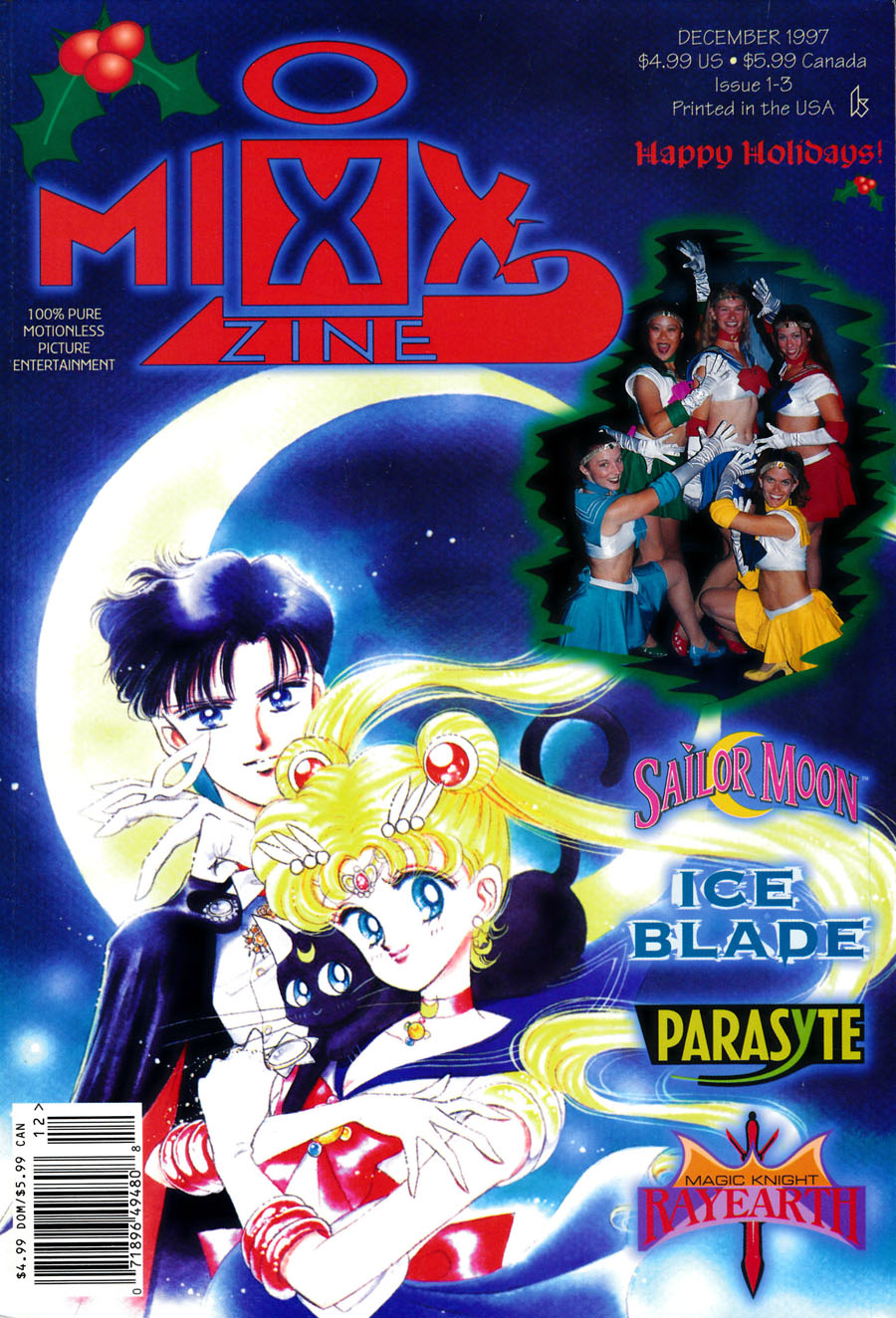 Everybody’s talking about Tokyopop this week, as the publisher that brought us Mixx, Sailor Moon, and Rising Stars of Manga
Everybody’s talking about Tokyopop this week, as the publisher that brought us Mixx, Sailor Moon, and Rising Stars of Manga 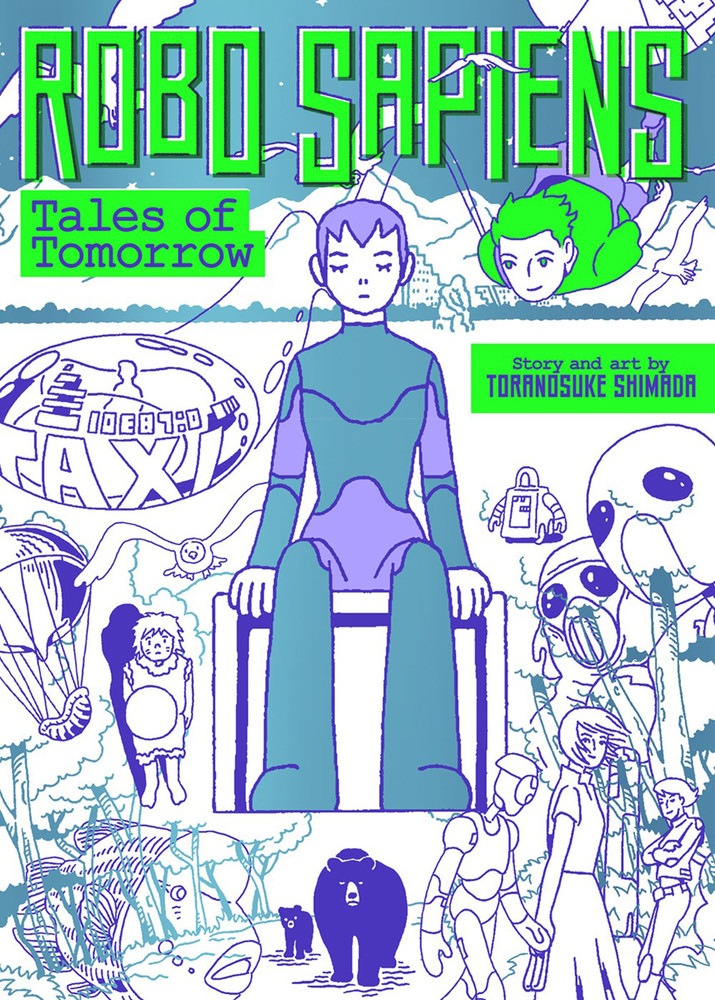 This year’s
This year’s 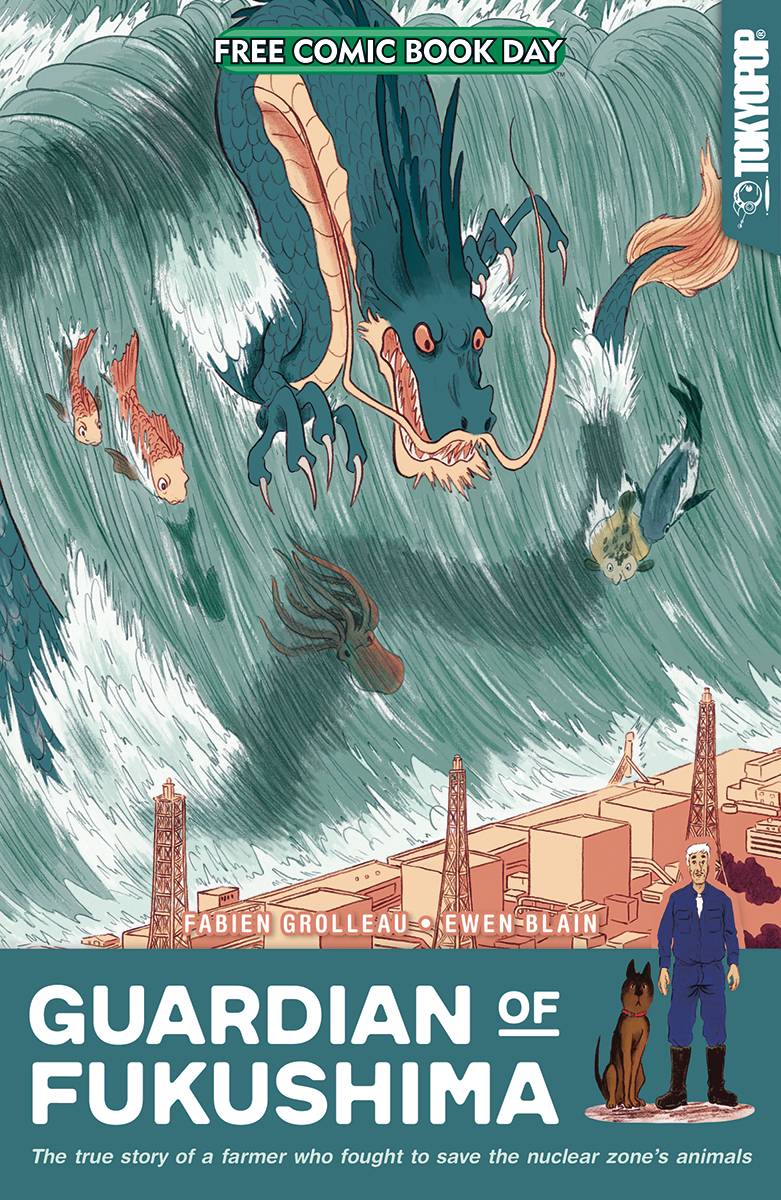 When it comes to manga commentary, I freely admit that I’m more of a reader than a listener.
When it comes to manga commentary, I freely admit that I’m more of a reader than a listener. 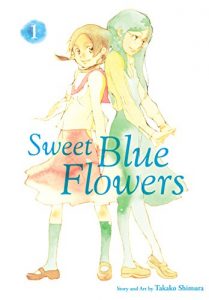

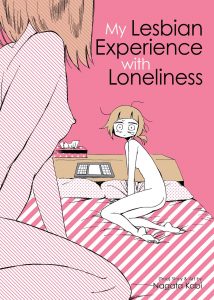
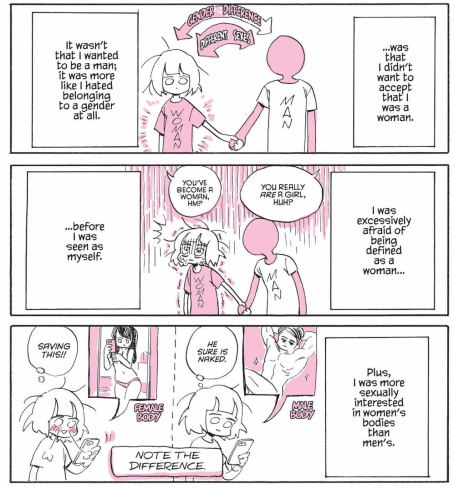
 MJ: Sure! Hmmmm… now the question is, which one? I guess I’ll start with the book I read last, since it’s freshest in my mind, and that would be
MJ: Sure! Hmmmm… now the question is, which one? I guess I’ll start with the book I read last, since it’s freshest in my mind, and that would be 

 MICHELLE: Hmm… where to start? I suppose the simplest title can go first, and that would have to be Hayako Goto’s
MICHELLE: Hmm… where to start? I suppose the simplest title can go first, and that would have to be Hayako Goto’s  MJ: Sure! Let’s take a fairly drastic turn and look at the other single volume we each read, Ebine Yamaji’s
MJ: Sure! Let’s take a fairly drastic turn and look at the other single volume we each read, Ebine Yamaji’s  Our last title is Milk Morinaga’s
Our last title is Milk Morinaga’s 


